Sharing voices through the power of podcasts
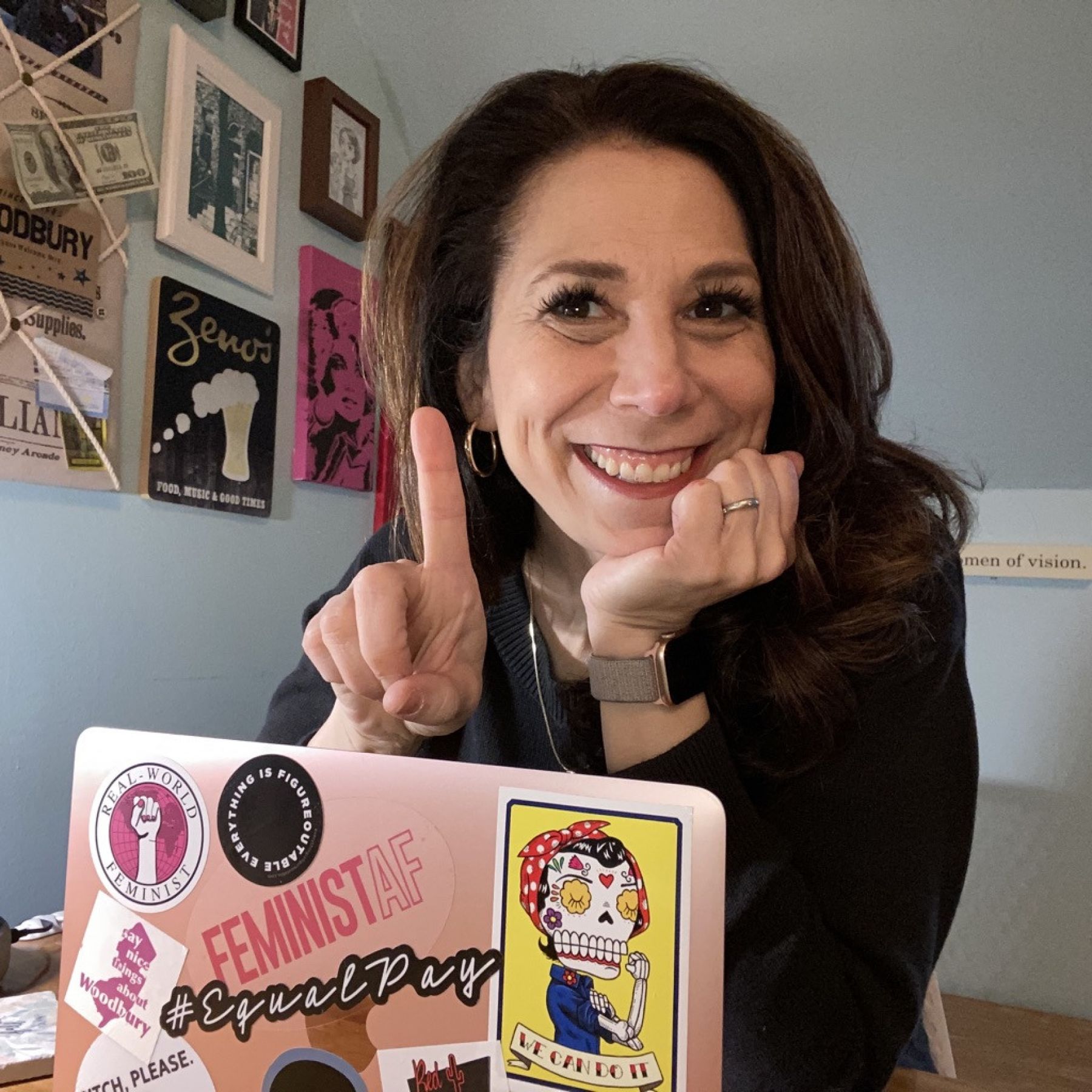
Podcasts are everywhere these days. They’ve found their way into cars, offices and gyms. They are played on phones, smart speakers and radios. More than a third of Americans report listening to podcasts, and although some experts say they are nearing the peak of their popularity, podcast listening has grown every year over the past seven years.
Creative minds among alumni of the Donald P. Bellisario College of Communications are donning headphones and plugging in microphones. They have developed podcasts about all sorts of things. The inspiration behind each one is as diverse as the topics – from finance to pop culture and politics to sports.
With more than two decades of experience working in health communication, Michelle Kinsman (’92 Film) hosts The Real-World Feminist, a podcast offering career advice for young, ambitious women.
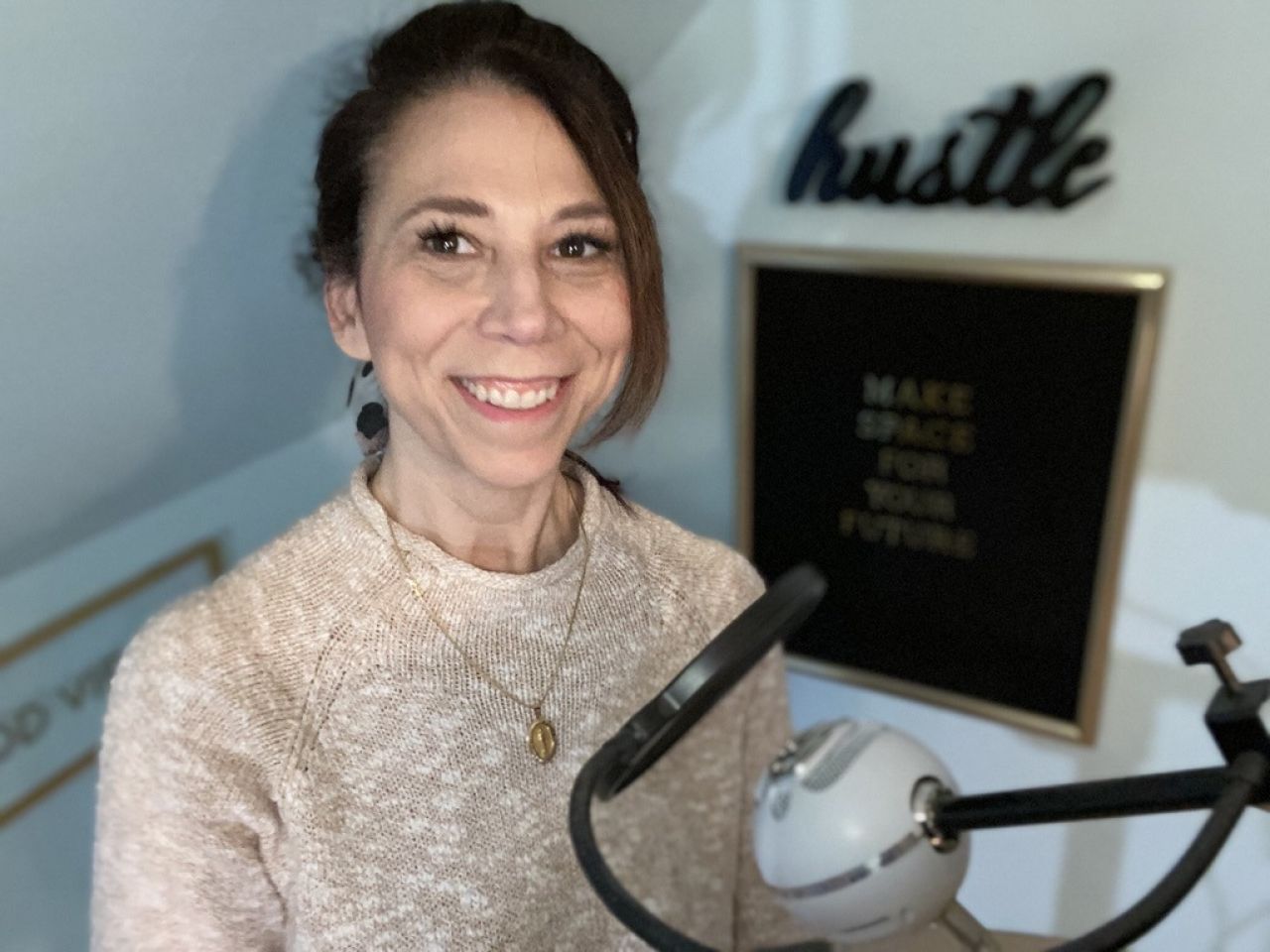
What started as a book with the same name made a seamless transition to podcast. Both were inspired by Kinsman’s early beginnings as a recent graduate. The first in her family to go to college, she returned home to Mountain Top, Pennsylvania, not knowing what to do next.
“In the university environment, I felt like I was taking the world by storm,” Kinsman said. “Then I moved back to my hometown in northeastern Pennsylvania, and the career opportunities that I was looking for certainly weren’t prevalent.”
Today, Kinsman is a senior vice president at Digitas Health. Her podcast has more than 40 episodes with topics ranging from LinkedIn tips to creating career goals to the art of the “graceful humble brag.”
“I've never lost sight of how I felt during that time (after college),” she said. “I eventually figured it out, but it's one of the reasons I've been so focused on helping other women build their careers.”
Each time she gets behind the microphone, Kinsman visualizes the mentors who helped her and the people she worked with throughout her career. Her focus always comes back to the time right after graduation when she didn’t have someone to turn to for help. In a way, Kinsman says, she is speaking to her former self in hopes that it encourages young women facing similar obstacles.
“It’s very intimidating when you're starting a career,” she said. “I am always trying to help that person in my mind’s eye.”
"How to Keep it Real (and Professional) on Social Media" LINK
-- SIDEBAR: A network emerges from one podcast --
Athletes & Artists
Someone who might be in Kinsman’s target audience is Jillian Petrie (’16 Ad/PR), a freelance theatre director and choreographer in New York City. Petrie founded the website, blog and podcast Athletes & Artists to highlight the “creativity and athleticism in all of us.” The site conducts interviews that reveal the connections among athletes, artists and other professions.
“We are all athletes and artists,” said Petrie, who thought of the idea while working in freelance sports broadcasting. “I didn’t think it was being talked about much. Especially when you think of kids and the way they perceive (activities) when they’re in school: Am I an artist or am I an athlete? Do I play football or do I try out for the play?”
The interviews on Athletes & Artists feature evidence that they can do two things, if not more, at once. There are many similarities between the way artists and athletes train. Uncovering all sides of those creative and hard-working people drives Petrie’s interviews.
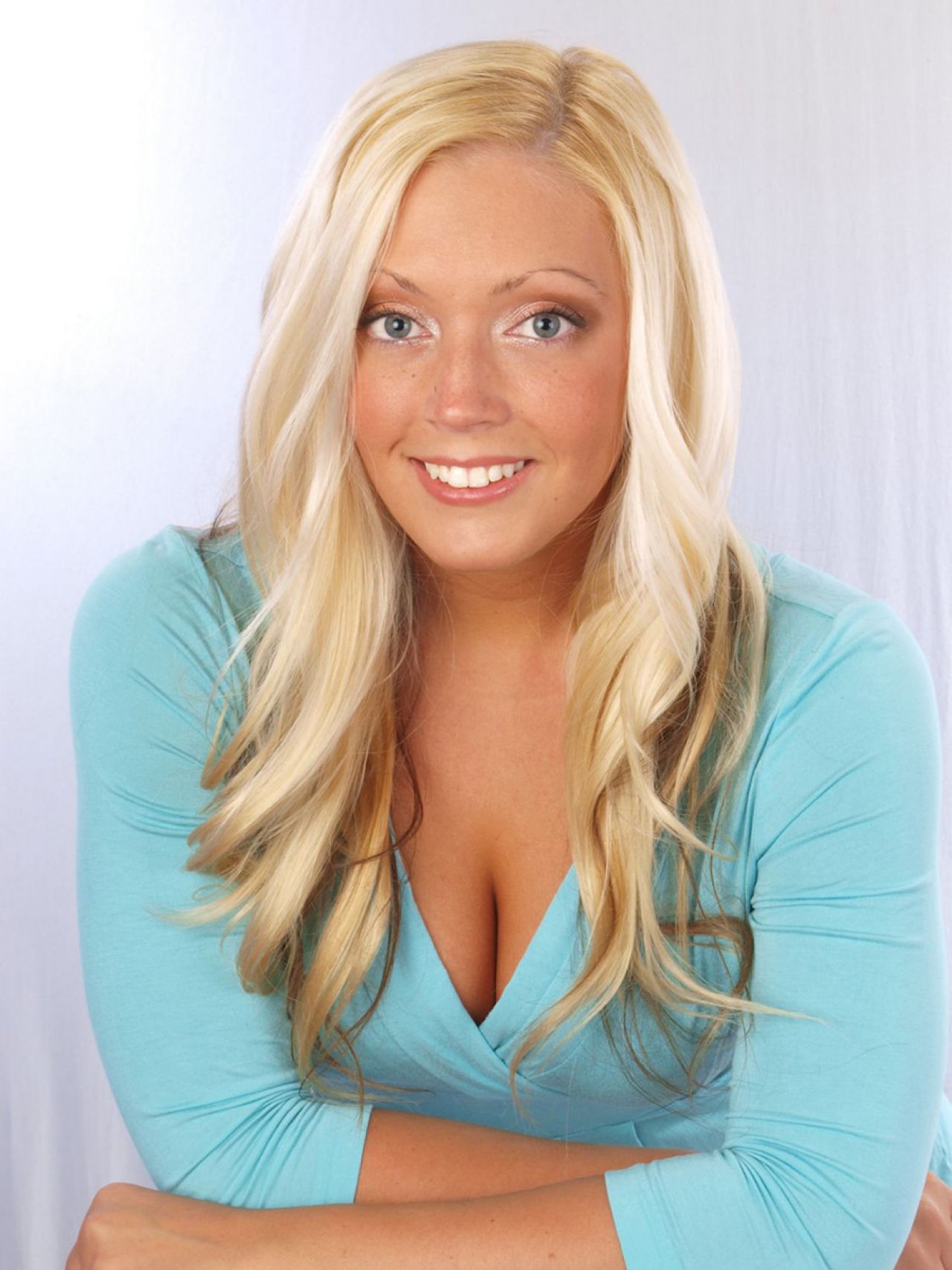
Jillian Petrie
“A singer will say they think of themselves as an Olympic singer,” she said. “And there are so many athletes who need creativity (in their lives). Finding these similarities is where the company started, and it’s become a hub of motivation, inspiration and education.”
Petrie describes the format of the podcast as “conversational and relatable.” She added that a podcast was the obvious addition to the articles she was writing about those multitalented individuals. There’s no better example than when Petrie called an artist to talk about his new rap album and, when he picked up the phone, he was in the middle of training for an upcoming motocross biking event.
“It was hysterical. He was like, ‘Oh my god, I forgot about this,’” Petrie said. “So, he’s riding his bike in training, trying to keep his heart rate in a certain place for the whole interview. And he's talking about his rap album, and he's just so passionate about it. You could totally tell the energy and dedication he has for both fields.”
She said there are many professional athletes and artists in her audience. The podcast is also an outlet for people who might not be a Broadway star, but teach dance at home, or might not be in the NFL, but coach at a high school.
“The people who are really doing it and really training and going for it … talking about their passion lights them up,” Petrie said. “I think it’s a different way to see yourself.”
"Just Call Her An Olympic Singer, "Amy Shoremount-Obra" LINK
Dear Old State
Alums Matt Brown (’10 Journ) and Audrey Snyder (’12 Journ) have witnessed almost all sides of top-tier athletes. They met while writing for The Daily Collegian, and today they host Dear Old State, a podcast about Penn State football for the sports website The Athletic.
Twice weekly during the football season and regularly in the off-season, Brown, a college football editor at The Athletic, and Snyder, the site’s Penn State beat writer, discuss all things Nittany Lions. The series complements the extensive coverage the site provides on the team.
For Brown, who manages full-time national and team-specific beat writers, the podcast is a chance to talk about the team he grew up supporting. Coming from a Penn State family, Brown fell in love with college football at his first game in Beaver Stadium. (It was 1994, and Penn State beat Ohio State, 63-14.)
“It’s pretty open ended and we have a lot of creative freedom, but we also have a producer that gives us feedback. We're trusted to put on a good show and have fun with it.”
Matt Brown
“I like to think Audrey and I complement each other well,” Brown said. “She’s on the ground covering the team every day. I have a historical background, and our different skill sets blend well together.”
Publishing printed articles is their main job, so the on-the-ground interviews and stories serve as prep for each podcast episode. Then Brown and Snyder create a list of topics they want to cover. Once they hit the record button, they tackle everything from the previous week’s game to new recruits to the all-decade team of the 2010s.
“It’s pretty open ended and we have a lot of creative freedom, but we also have a producer that gives us feedback,” Brown said. “We're trusted to put on a good show and have fun with it.”
The Athletic has experimented with its podcasts, and most episodes are free to non-subscribers. Brown said it’s a great way to attract new readers. He also hears from fans who offer their two cents — sometimes more. He’s met some listeners as well.
At a wedding last September, he sat next to a fan and the two got to talking. “I didn’t know anyone (at the wedding),” Brown said. “We figured out that we both went to Penn State. And I said my name again, and he was like, ‘Wait a second. I listen to your show.’”
"The 2010s: The All-Decade Nittany Lions Line-Up" LINK
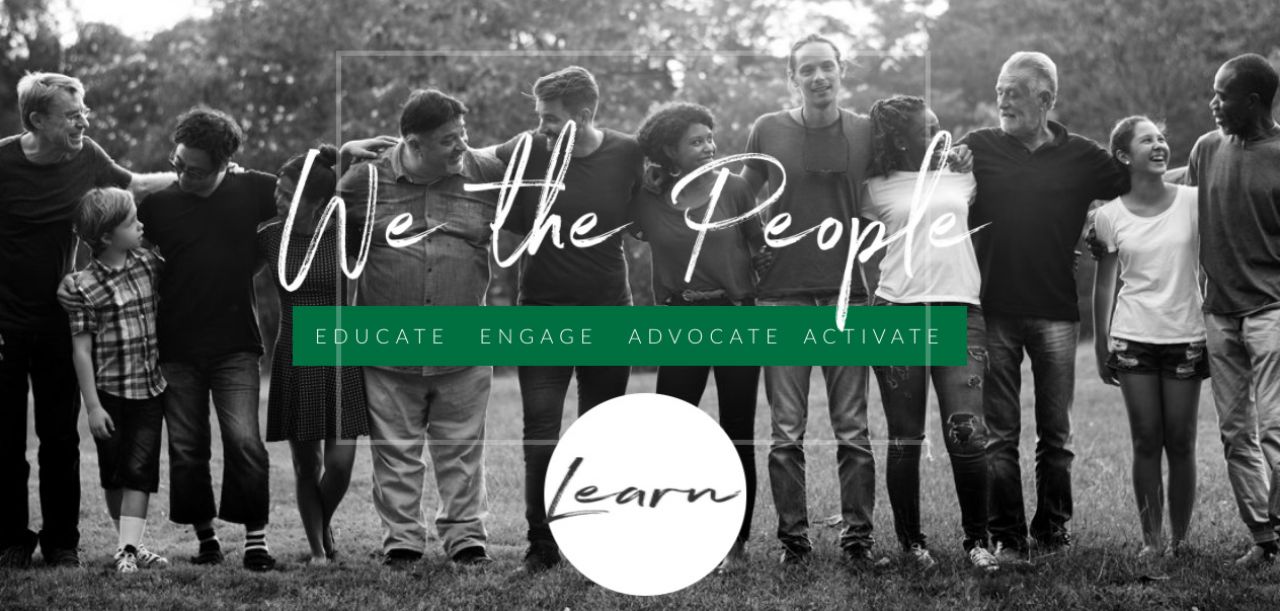
Save Davidson
Denise Fezza Beall (’97 Comm) probably knows many of her listeners by name. She uses the power of the podcast to advocate for her hometown of Davidson, North Carolina. It’s a small part of an operation Beall helps run to preserve the “small-town quality of life” in the south-central North Carolina town.
The project, Save Davidson, strives to educate citizens about town governance and encourage them to become active in the community. It started in 2017 as a grassroots group targeting the sale of land in the town to a private developer and the town government’s handling (or mishandling) of the transaction.
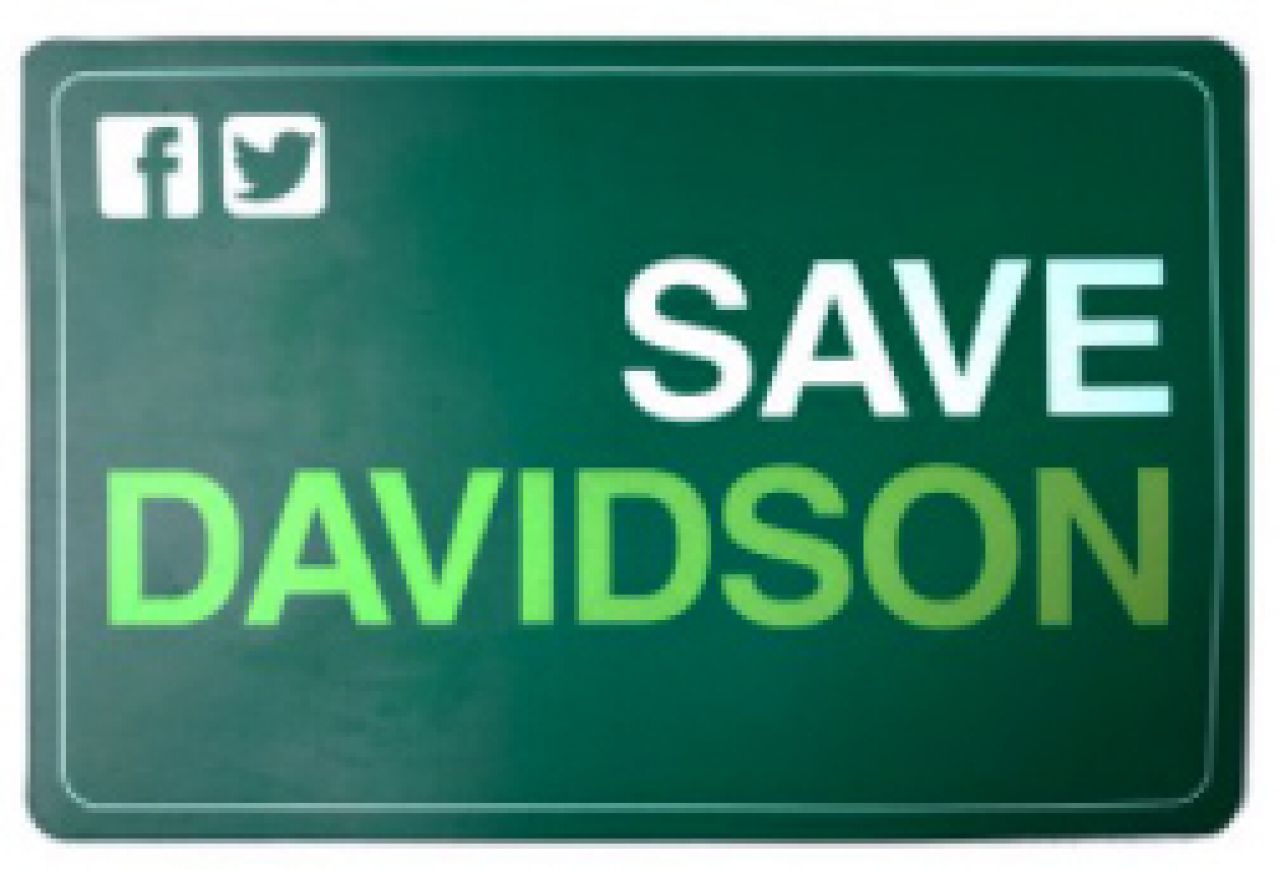
After that, “people from all over town came forward and said, ‘Hey, we had problems with the town. We were squelched over here on this different project,’” Beall said. “So, everyone just sort of jumped on organically. And we were able to make a change. We ended up turning over much of the town board and voting out the mayor that way.”
She added that the organization is not anti-development, “it’s more about appropriate development and keeping citizens engaged about tax-dollar expenditures and various town-run programs.”
Save Davidson has since become a 501(c)(4) operation serving as an advocate for the town, and Hometown Talks has become its podcast series. Beall volunteers her time to host, and she said positive feedback and requests for more episodes have been nice. Topics range from the story behind Save Davidson to accessing affordable housing in the town. “What are the realities? What are the different types?”
The home to Davidson College and a bedroom community for commuters to Charlotte, the town enjoys a strong economy, which drives development. Beall is finding that the podcast is empowering her neighbors to speak up and keep rapid development in check.
“It gives the citizens a voice whether they are in elected office or not,” Beall said. “I feel like it gives them purpose.”
"History of Save Davidson and the Beaty Property" LINK


 @wawaislife
@wawaislife